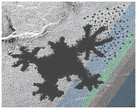Wilfred Owen
1893-1918| Regarded by some as the greatest of all war poets, and possibly one of the greatest writers of the twentieth century. Born in Oswestry in Shropshire. After failing to attain entrance to the University of London, he spent a year as a lay assistant to the Revd. Herbert Wigan at Dunsden before leaving for Bordeaux, France, to teach at the Berlitz School of English. In 1915 he enlisted fighting on the Western Front. During a spell in the Craglockhart Hospital he met Siegfried Sassoon who encouraged him to develop his poetry. Owen's poems are amongst the most famous and poignant of the war. He died crossing the Sambre canal one week before the Armistice in 1918. | 
|
Wilfred Owen's biography and works
(from an introduction by Siegfried Sassoon to the published book of poems of Wilfred Owen)
The importance of his contribution to the literature of the War cannot be decided by those who, like myself, both admired him as a poet and valued him as a friend. His conclusions about War are so entirely in accordance with my own that I cannot attempt to judge his work with any critical detachment. I can only affirm that he was a man of absolute integrity of mind. He never wrote his poems (as so many war-poets did) to make the effect of a personal gesture. He pitied others; he did not pity himself. In the last year of his life he attained a clear vision of what he needed to say, and these poems survive him as his true and splendid testament.
Wilfred Owen was born at Oswestry on 18th March 1893. He was educated at the Birkenhead Institute, and matriculated at London University in 1910. In 1913 he obtained a private tutorship near Bordeaux, where he remained until 1915. During this period he became acquainted with the eminent French poet, Laurent Tailhade, to whom he showed his early verses, and from whom he received considerable encouragement. In 1915, in spite of delicate health, he joined the Artists' Rifles O.T.C., was gazetted to the Manchester Regiment, and served with their 2nd Battalion in France from December 1916 to June 1917, when he was invalided home. Fourteen months later he returned to the Western Front and served with the same Battalion, ultimately commanding a Company.
He was awarded the Military Cross for gallantry while taking part in some heavy fighting on 1st October. He was killed on 4th November 1918, while endeavouring to get his men across the Sambre Canal.
A month before his death he wrote to his mother: "My nerves are in perfect order. I came out again in order to help these boys; directly, by leading them as well as an officer can; indirectly, by watching their sufferings that I may speak of them as well as a pleader can." Let his own words be his epitaph:
"Courage was mine, and I had mystery;
Wisdom was mine, and I had mastery."
Siegfried Sassoon.
Preface
This book is not about heroes. English Poetry is not yet fit to speak of them. Nor is it about deeds or lands, nor anything about glory, honour, dominion or power, except War.
Above all, this book is not concerned with Poetry.
The subject of it is War, and the pity of War.
The Poetry is in the pity.
Yet these elegies are not to this generation,
This is in no sense consolatory.
They may be to the next.
All the poet can do to-day is to warn.
That is why the true Poets must be truthful.
If I thought the letter of this book would last,
I might have used proper names; but if the spirit of it survives Prussia,
-my ambition and those names will be content; for they will have
achieved themselves fresher fields than Flanders.
Note: this Preface was found, in an unfinished condition, among Wilfred Owen's papers.

Mail to: Graybyrd
This is my work in progress of stories, poetry (mine and also some of Wilfred Owen and Robert Service), commentary, and personal recollections.